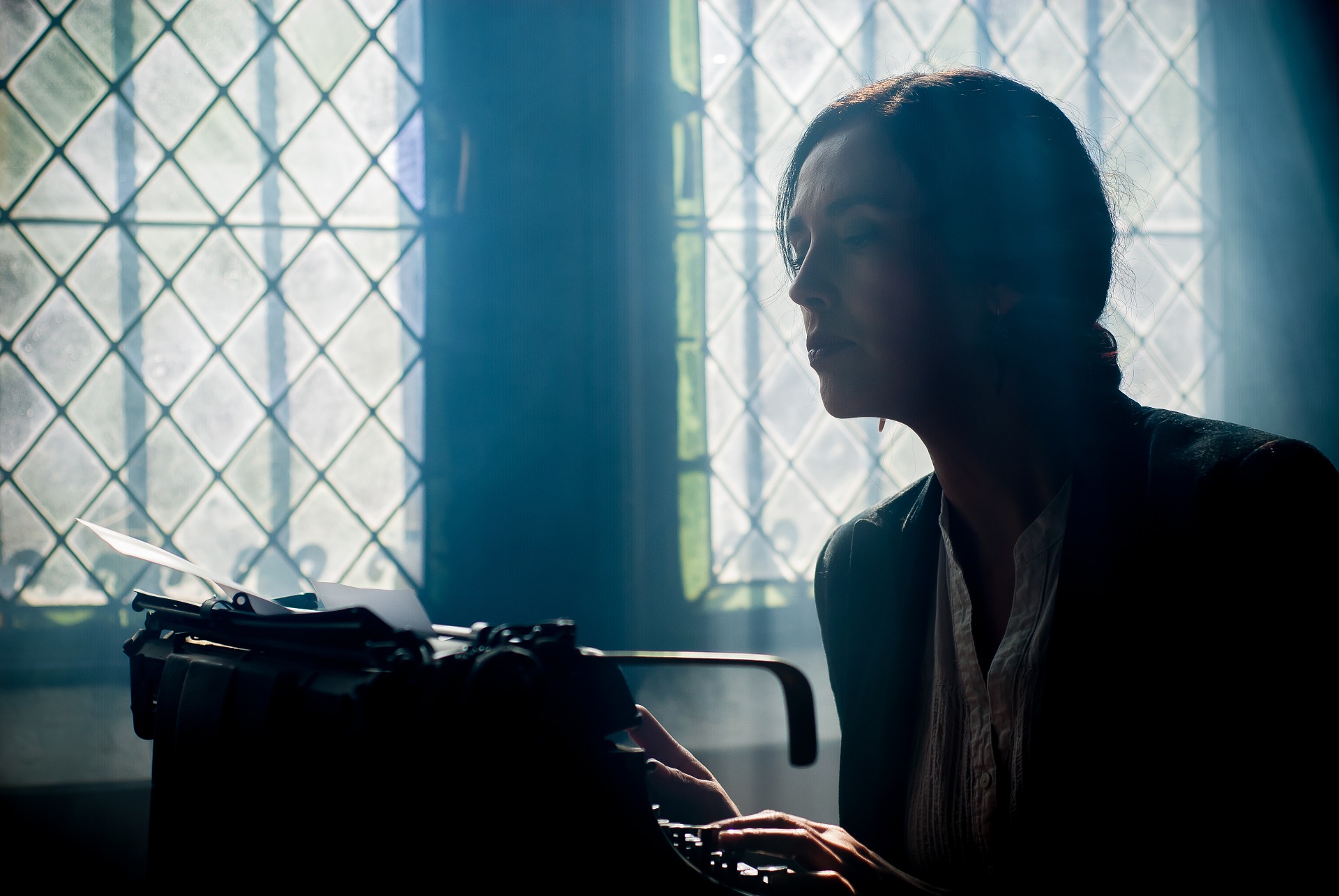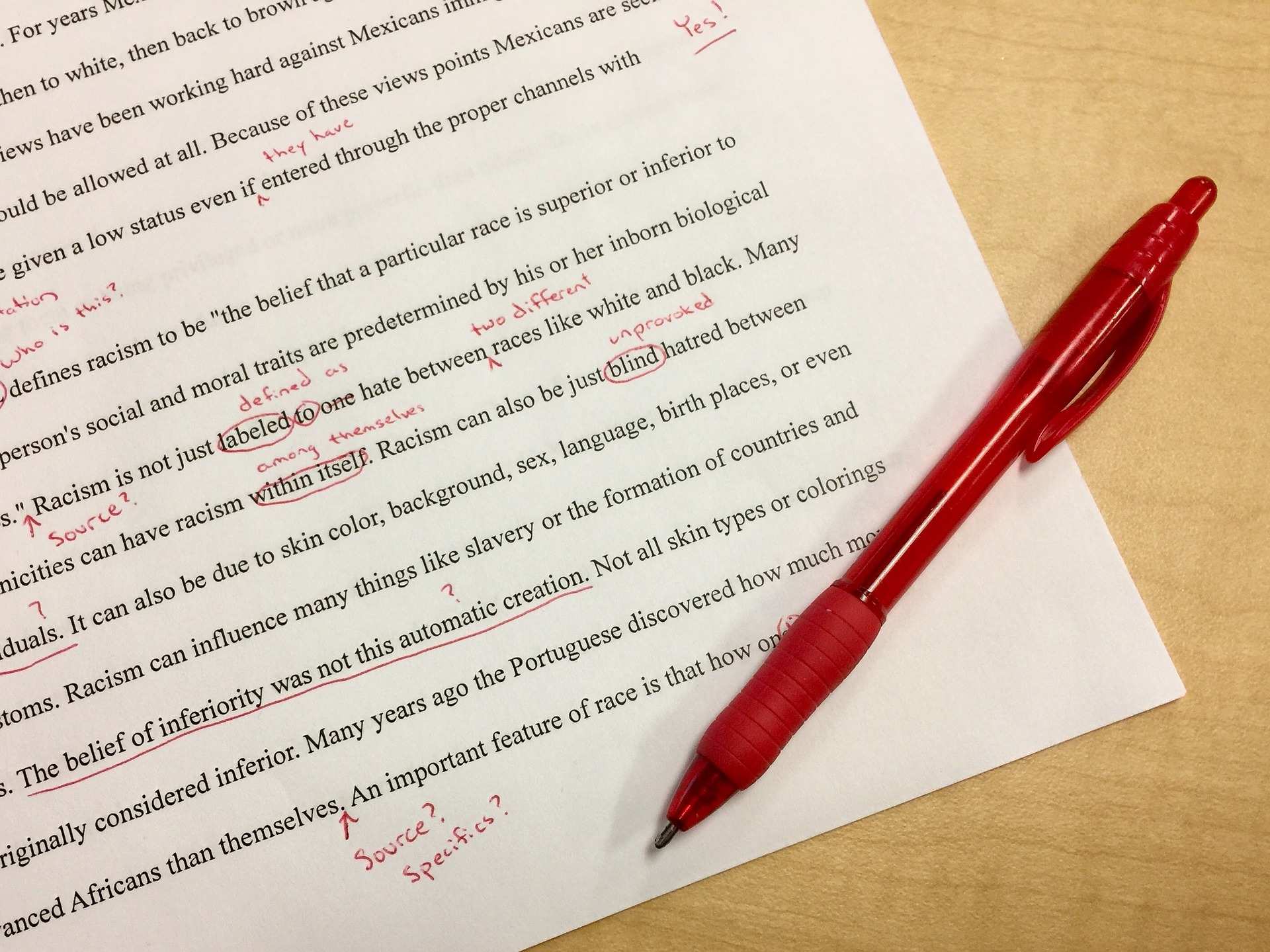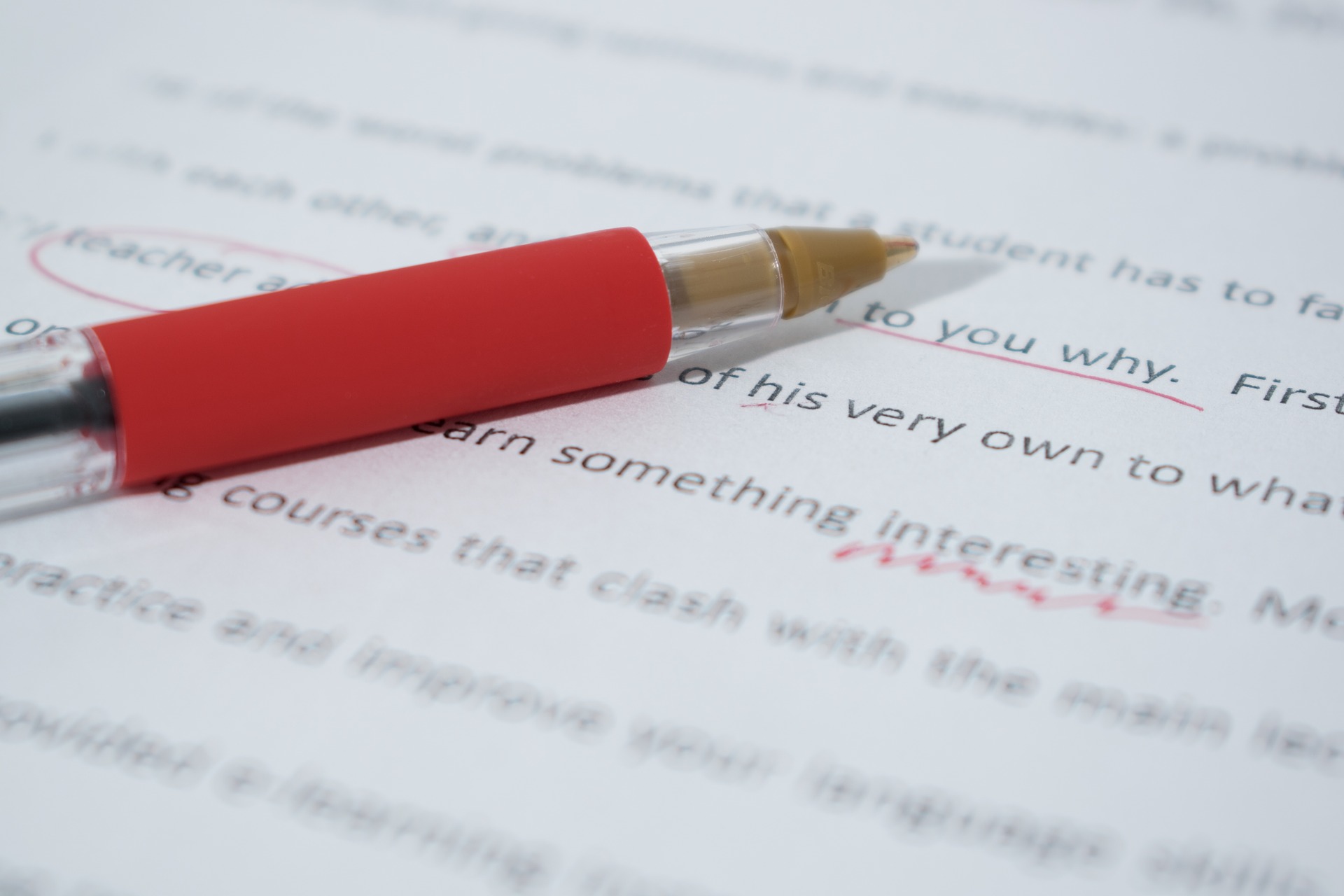Hello! I have Erika Mathews here with us today to talk about what you can do WHILE writing to make editing easier. While I do recommend writing messy for new writers still figuring out the craft, further down in your career, you might not have that luxury.
So here are some tips for saving you grief in the editing stage.
Erika is a very good friend of mine, and has beta'd both of the Rizkalands. She's a brillaint editor, and just released her first novel Promise's Prayer, which I would have beta'd for her, if I hadn't had Sew's revision and Indie e-Con prep on my plate at the time. I did volunteer to review it, though I'm still waiting on my arc...
Follow her on the intewebs:
Whether editing is the bane of your existence, the love of your life, or (more likely) somewhere in between, there’s a big difference between approaching a complete mess and revising a semi-coherent manuscript. In the excitement of crafting a brand-new story with a new plot and new characters, it may be easy to relegate editing to a distant back burner—but ultimately, keeping your editing process in mind from Day 1 will make rewriting, proofreading, and revising far more painless.
Read

Reading quality literature is one of the most effective ways to improve writing quality. None of my countless grammar, English, language, and writing courses impacted my understanding of the English language and my eye for grammar as deeply as did my love of reading. Reading (especially from a young age) familiarizes the eye and mind with proper syntax and usage. This, in turn, enables the brain to more quickly recognize and reject improper or weak writing.
The caveat, of course, is that it must be high-quality writing—most internet reading doesn’t count. Unfortunately, informal usage and “breaking the rules” has also become standard in modern literature. While occasional rule-breaking is perfectly fine, it’s important to know the rules so that the choice to break them is deliberate and not the result of carelessness or ignorance. One of my favorite categories to read is old literature—a treasure trove of rich English usage as well as the highest standard of style and word aesthetics.
Format correctly, or not at all

Authors and editors are divided on this point. Some prefer to format before or during writing. Others staunchly advocate clearing all formatting and typing your book in plain text – saving all formatting for after the book is finished. Whichever route you prefer, make the decision before you start writing. Although you might think, “I’ll just write this story for fun,” cementing your formatting strategy beforehand will pay off.
If you know you'll be working with an editor or formatter, check their policies. Often editors have a preferred format. Aligning your document with this format before you begin writing ensures that you’ll be able to send your work to your editor that much more quickly.
If you’ll be editing your own manuscript or you don’t have an editor yet, it’s always safe to write in plain text with no formatting. You’ll then be able to research and apply the correct formatting all at once afterward.
Personally, I prefer to format my manuscripts beforehand or as I go, as a non-formatted manuscript hampers my creative process. If you choose to go this route, take time to familiarize yourself with standard formatting. Do research on Google and read the Help section of your word processor. Learn to use styles, and learn to set up formatting via toolbars and dialogue boxes instead of manually. A plethora of resources is available for proper setup of a manuscript in Microsoft Word or Open Office. Createspace, Lulu, and other publishing platforms also provide formatted templates for you to type your book in. Even though it’s tempting to do whatever you think looks good, knowing the proper methods is worth it in the long run.
Outline

Plan. Research. Brainstorm. Take notes. Collect facts, data, illustrations, scene ideas, character bios, and setting notes. Create a Pinterest board for your story. In short, compile as much supporting information as possible before writing the first word. Even if you’re a pantser, having a database to work from will improve the quality of your writing. You won’t have to remember if the main character’s eyes are brown or black; you can refer to your notes.
Then organize your information loosely. Leave plenty of room for your creative instincts to take over, but have a general sense of what should happen in each chapter and how each chapter forwards the plot, subplots, and character arcs. Once you begin, write the scenes you’re most excited about. Write the scenes that are most crucial to your plot. Write the defining moments in your character’s lives. When you finish your first draft, your manuscript will be that much more cohesive.
Correct As You Go

I’ve followed the NaNoWriMo rule of “Never Edit,” and I’ve ignored it. While getting the story on paper is valuable (and dragging out the writing process unnecessarily isn't recommended), imagine that you’re ready to begin your first edit. Which would you rather start with: a chaotic mess of misspelled words, sentence fragments, stream-of-consciousness filler, an idiotic subplot that you dragged out to the bitter end even though you knew it was trash; or a semi-cohesive rough manuscript that you can actually read while you edit?
Crafting a novel or a non-fiction book isn’t a race to the finish line. It’s a creative process. Every step you take builds upon previous steps. Every brick you lay cements further into place the bricks previously laid. If you never edit while you write, you won’t produce a rough draft; you’ll simply produce a lengthy but cluttered outline.
This doesn’t mean you should obsess over every word and comma. However, approaching a completely jumbled mess is highly discouraging—where do you start? Persevering through the editing process is much easier when the basics (typos, sentence structure, flow) are already covered. Correct your spelling and grammatical errors as you type them and you won’t have to worry about missing them later on. Lay a solid foundation for your book and the remodeling will be much easier.
Take Notes

While you write, you’ll inevitably hit a roadblock. You know you need an extra scene at the end of Chapter 3, or you know you need to name the main character’s best friend’s mother, or you know the dialogue of Chapter 17 is weak—but you don’t want to stop the flow of your story just now to address those issues. Instead, make a note of it. Don’t assume you’ll remember, and don’t assume you’ll find the place again later—you’re just making extra work for yourself. Write it down, and when editing time rolls around, you’ll only have to consult your notes to know exactly where to begin.
Several methods of note-taking work equally well—find the one that works best for you. You can take notes in a separate document or in a physical notebook. Using the comment feature of your word processor is one of the easiest ways to take notes, as it makes it easy to find that section of your manuscript later on. One method I don’t recommend is taking notes directly in the body of your manuscript—they may get lost in your story or garbled if you need to use the Find and Replace feature.
Distinctly Mark Places that Need Editing

Similar to the previous step, this step addresses keeping track of what needs to be edited later on. However, I’d like to focus on one specific point: words, phrases, names, or sentences in your manuscript that you know you’ll need to change, delete, add to, or research.
Example: You still haven’t named your protagonist’s friend’s father, but you need to refer to her in the story. DON’T write something generic like “Father” or “Man” or “Friend’s Dad” or “A” and keep going. Why? Because when you do finally decide that Angelo is the perfect name for him, you will have to read through your entire manuscript looking for every occurrence of your keyword and manually changing to Angelo. Find-and-Replace is a handy tool, but only if you can use it without compromising the rest of your story—and you can imagine the chaos if you use the tool to replace every instance of “Father” or “Man” or “A” in your story with Angelo:
In short, any way to approach this, you make extra work for yourself. Even “Friend’s Dad” might be off-limits; what if your protagonist tells his wife about his other friend’s dad somewhere in your story?
All in all, it’s safer to pick a very specific word that you are sure you won’t use anywhere else in your manuscript. Pick a temporary name: “Mr. ArfArf” or “Jed Hanson” or even “Qwerty” or “Zzzz,” and add it to your notes so you’ll remember what you chose. This will simplify replacing the word later using the Find and Replace tool.
Teach Yourself to Think in Strong Words

One major element of editing is replacing weak words with strong words. The more we learn to think in strong words, the more naturally those words will flow onto the paper and consequently the less editing we’ll need to do.
This principle applies beyond the world of writing. In every area of life, what we fill our mind with is what we will become. What we sow, we reap. What we listen to eventually becomes part of our belief system. Because of this, it’s crucial to fill our mind with only the best, and for a believer, that is meditating on the Word of God day and night.
For the writer, applying this principle means surrounding ourselves with words, thoughts, concepts, ideas, stories, and phraseology that will improve our writing. Every word we write is based on a thought we had, whether consciously or unconsciously, and every thought is a result of something we saw, heard, or otherwise sensed around us. As Scripture says, “Out of the abundance of the heart the mouth speaks.” (Luke 6:45)
Therefore, in order to write eloquent, strong, powerful words, it’s essential to teach ourselves to think that way. Have you ever listened to a movie, show, or audiobook with a different accent from yours and then found yourself speaking in the same accent? Have you ever read a book you loved and found yourself attempting to write your own book in the same style? If we read quality literature, we tend to write in the same voice; if we read internet comments and social media statuses, the quality of our writing may become more informal accordingly.
Therefore, if we desire to become excellent writers, we must choose to surround ourselves with excellent use of the English language. Read well-written books. Read books with a large vocabulary. Read books written in the high-quality style you wish to write in. Although it might be fun to read lazy writing, excellence in our own work will be that much more difficult to attain. Choose to set aside the inferior for that which is best and you will see the results in your own work. This isn’t easy, but it is necessary in the quest for excellent writing.
In addition, purposely notice artistic word usage and quality phrasing. Practice wording your own sentences that way. When you go about your day, narrate your own life story to yourself using high-quality words and sentence structures. The more you practice thinking the way you wish you could write, the more that will become reality in your books.
Writing and editing are intertwined steps of the book creation process, and approaching the process with both in mind will aid in the big picture of producing your final manuscript. My prayer is that God will bless you in your writing adventures, and my hope is that these steps will help make the editing stage of your journey more painless and more joyful in your pursuit of a flawless manuscript.
Have you used these steps during writing before, and how have they worked for you? What steps do you take while writing to make editing easier?


I like to read a lot. I believe that is one thing that really helps me with my writing. I also like to correct as I go. If I know I need to fix something, it will bug me if I don't.
ReplyDeleteAmazing how the little mistakes can be the most annoying. :)
DeleteI started reading the classics in elementary and that made a huge impact on my writing.
ReplyDeleteIt seems like many writers begin their careers through their love of reading. :)
DeleteI also love the comments feature in Word so all my notes are right in the margin of my document.
ReplyDeleteI love these tips! This is a five-star article. Reading good books has helped me immeasurably in both writing and editing. Like you, I format because it hampers me if I don't. :) I have a document with all my notes for each story, and I mark places that need work. Though I never thought of coming up with a unique word to mark them! I should do that. Usually I put a note word in bold type.
ReplyDeleteYour final piece of advice is my favorite of all.
I find my thesaurus helpful, because sometimes I just can't call to mind the perfect, specific word I want, so I look up the generic word's synonyms and usually discover THE word there.
Thank you, Kelsey. I'm glad you enjoyed the article! Yes - I often use the thesaurus built in to Microsoft Word when I've overused a word.
DeleteThe final point is my favorite as well. :)
This was an amazing post, Erika - I'll definitely be bookmarking it to refer to later! You gave us some really great tips, and I appreciate them. I'll definitely have to put some of your ideas into practice ;). Thank you for sharing your thoughts!
ReplyDelete~ Savannah
scattered-scribblings.blogspot.com
You're welcome, Savannah! I'm so glad you found it helpful. :)
DeleteGreat tips! I definitely agree with the read-well-to-write-well thing. Though I think my favorite part of this is when you actually recommend mentally narrating the day, because I don't think that's advice most of us get very often. xD
ReplyDeleteWhen I was little, I would narrate my day in my head regularly. I'm sure that was one seed that led to becoming an author and editor. :)
Delete